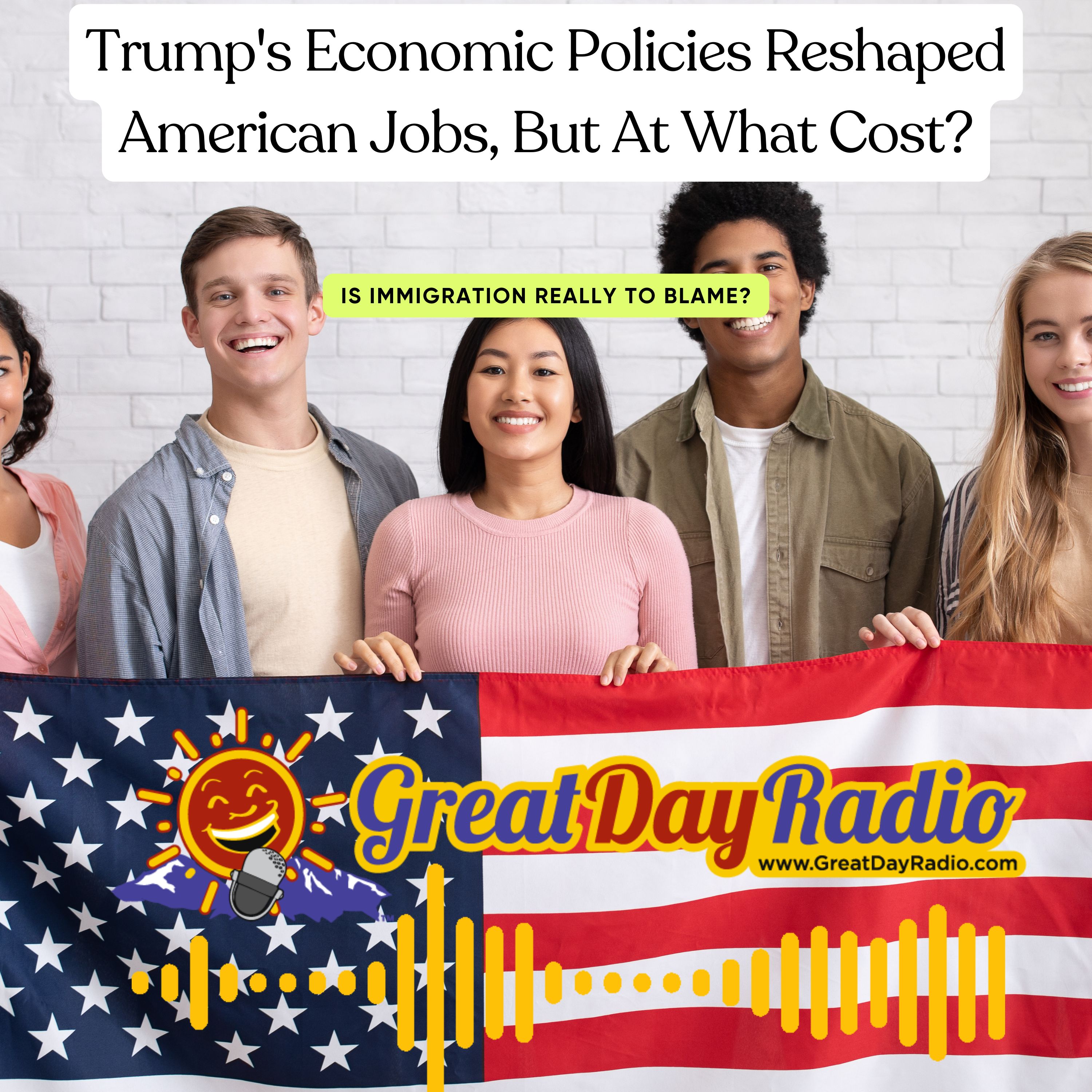
Trump's America: The Economic Ripple Effects and Future of Work
The future of work is changing rapidly. By 2025, automation and fewer immigrant workers will transform industries from healthcare to agriculture. What skills will you need to adapt? Explore this complex issue on our latest podcast.
Trump's Economic Policies and the Future of American Jobs: A Comprehensive Analysis
The economic policies implemented during the Trump administration continue to spark intense debate among economists, policymakers, and everyday Americans. On our recent Economic Echoes podcast episode, we explored these policies and their complex impacts on American workers and industries, both immediate and long-term. The conversation revealed multifaceted consequences that extend beyond simple partisan perspectives.
The tariffs imposed on imported steel, aluminum, and other goods were designed to protect and revitalize American manufacturing. Initially, these sectors did experience growth and increased hiring, offering renewed hope to communities that had suffered from industrial decline. However, these benefits came with significant trade-offs. American companies relying on imported materials faced increased production costs, potentially compromising their competitive edge in the global market. This ripple effect demonstrates how economic policies rarely produce straightforward outcomes – what benefits one sector may simultaneously burden another.
The Tax Cuts and Jobs Act of 2017 represents another cornerstone of Trump's economic approach. This legislation reduced corporate tax rates with the stated goal of stimulating economic growth and job creation. Large corporations did indeed report increased profits following these tax cuts, but the distribution of these benefits has been questioned. Critics argue that the gains predominantly favored wealthy individuals and large corporations, with limited benefits "trickling down" to average workers. While job creation did occur in the immediate aftermath, some economists suggest that the policy also contributed to widening income inequality. Additionally, the national debt rose significantly, raising concerns about long-term economic stability and the potential burden on future generations.
Deregulation formed a third pillar of Trump's economic strategy, with the administration rolling back numerous environmental and consumer protection measures. Proponents maintain that these actions removed unnecessary burdens from businesses, allowing for greater innovation and economic expansion. However, opponents raise serious concerns about the environmental costs and potential consumer vulnerabilities resulting from reduced oversight. This highlights the delicate balance between promoting business growth and protecting public interests – a tension that exists regardless of which administration holds power.
Looking ahead to 2025 and beyond, our podcast also examined how the American job landscape continues to evolve in response to both policy changes and technological advancement. Automation and artificial intelligence are transforming numerous industries, eliminating routine tasks while creating demand for new skills in areas like AI oversight, data analysis, and healthcare innovation. Simultaneously, changing immigration patterns and policies are affecting labor markets, particularly in sectors like agriculture, healthcare, construction, and hospitality that have traditionally relied heavily on immigrant workers. These demographic shifts could lead to labor shortages, increased costs, and potentially accelerate automation in certain industries.
The interdependence between economic policies, technological change, and immigration presents both challenges and opportunities for American workers and businesses. Adaptability emerges as a crucial quality for navigating this evolving landscape. Workers may need to develop new skills, employers must rethink their operational strategies, and policymakers face the task of creating frameworks that support sustainable economic growth while addressing demographic and technological changes. As we continue to analyze these complex issues on Economic Echoes, we invite listeners to share their personal experiences with these economic policies and join the ongoing conversation about America's economic future.





